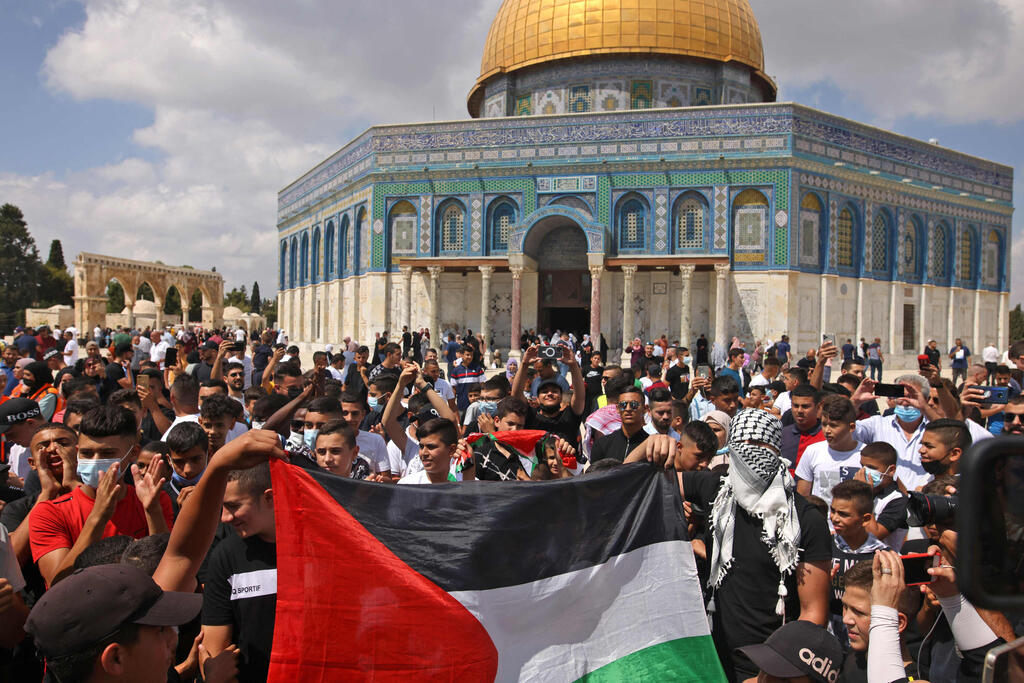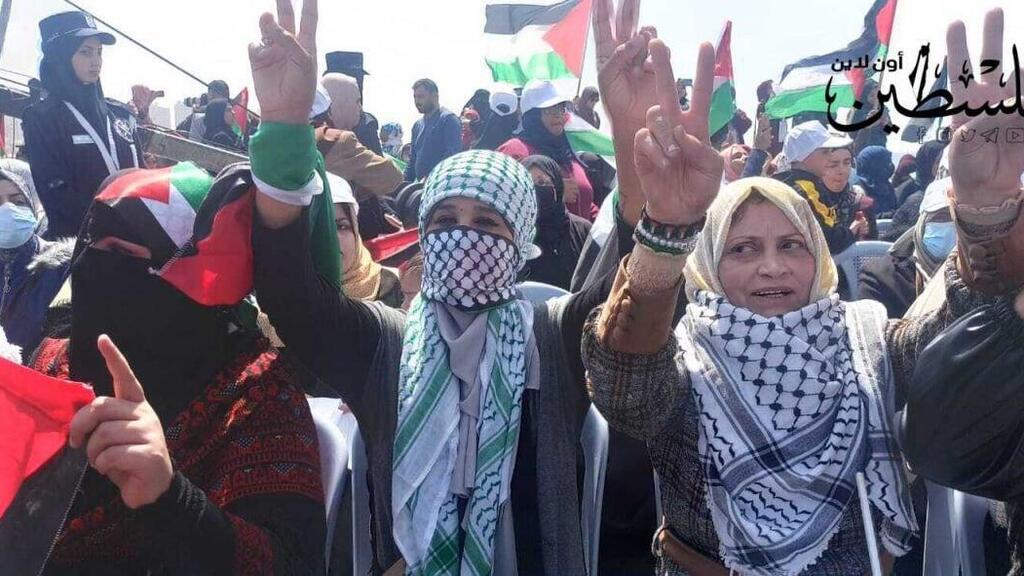Getting your Trinity Audio player ready...
With several deadly terror attacks in a week, which claimed the lives of nearly a dozen people, it seems there is no point in hoping the holy month of Ramadan, which starts April 2, will be even remotely peaceful this year.
Israel, however, can minimize the tensions and the violence if it at least adheres to certain rules and behaviors on three major Palestinian fronts, which could potentially shake the desired stability even further.
1. Days of remembrance
At the beginning of April, Palestinians commemorate a host of major events, such as Palestinian Prisoners' Day, Nakba Day, and the anniversary of the Great March of Return.
These days raise concerns of escalated violence every year. But, more so this year, when Palestinians are set to mark one year to the 2021 war in Gaza known as "Operation Guardian of Walls".
5 View gallery
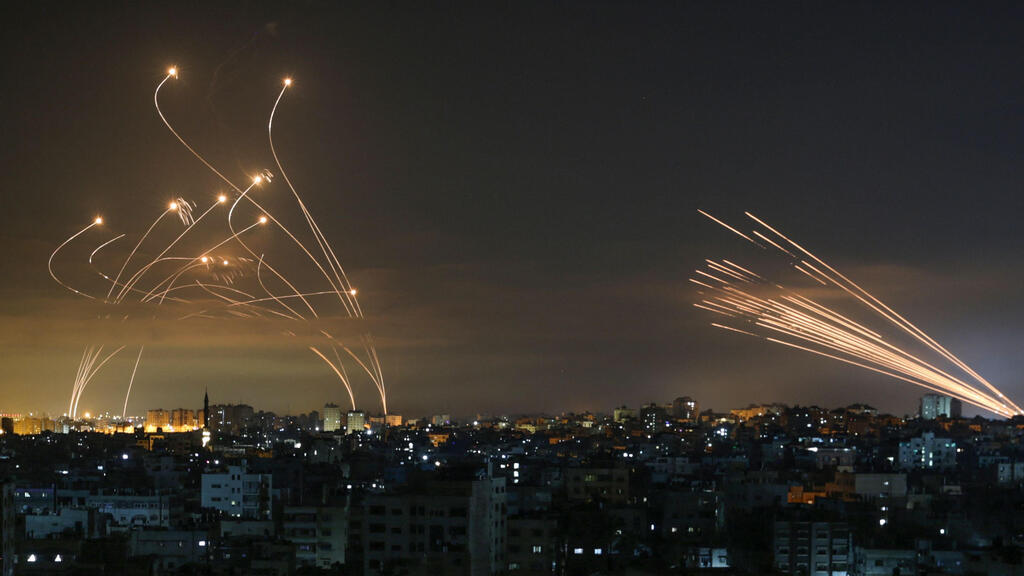

Iron Dome intercepts Gaza rockets during Operation Guardian of Walls in May 2021
(Photo: AFP)
2. Hamas
The terrorist organization Hamas has a very distinctive strategy this time of year: undermine the stability in the West Bank and East Jerusalem, while retaining it in the Gaza Strip.
On the one hand, this technique poses a threat to Israeli security and the Palestinian Authority's political legitimacy. On the other, the Hamas leadership is able to keep its political legitimacy in Gaza while antagonizing its rivals - Israel and the PA - in the eyes of the Palestinians.
5 View gallery
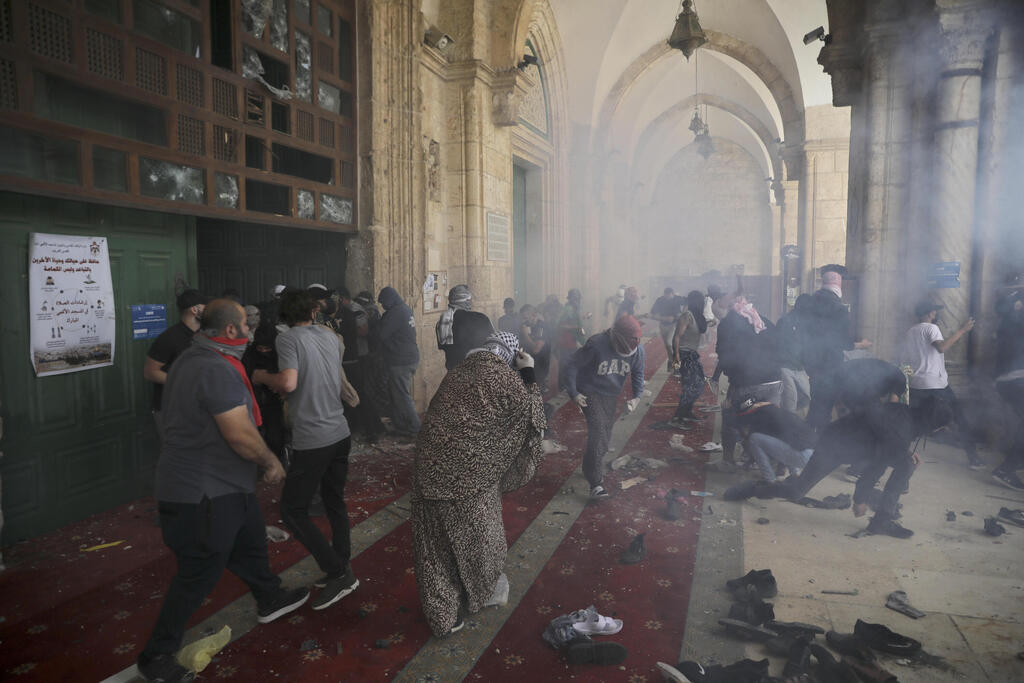

Palestinians clash with Israeli security forces at the al-Aqsa Mosque compound in Jerusalem's Old City, May 10, 2021
(Photo: AP)
This pattern was evident in last year's Hamas-driven upheaval at the Al-Aqsa Mosque, which quickly spread from Jerusalem to the West Bank and eventually to mixed Arab Jewish cities in Israel.
3. Status quo
Last year, the blocking off of the Damascus Gate in the Old City of Jerusalem served as the foundation for the mass riots that followed. While this may seem like a minor technical issue, it was enough to act as a scapegoat for Hamas to claim that Israel was undermining the status quo in the holy city.
With Ramadan set to kick off Saturday, Israel is trying to maintain the status quo and avoid making even minor changes, so that Hamas doesn't find excuses to do the same this time around.
Nevertheless, despite what may seem like a start of a fresh terror wave, there is a reason to remain optimistic that this year's Ramadan will be a relatively peaceful one.
For the past two years, the COVID pandemic deprived Palestinians of celebrating the holy month with festive family feasts and togetherness. This year, thanks to the vaccines and the decline in COVID cases among Palestinians, traditional celebrations can be practiced yet again.
Gaza is relatively stable, the Sheik Jarrah crisis has been temporarily solved, and there are no protests over the Al-Aqsa Mosque - so far.
5 View gallery
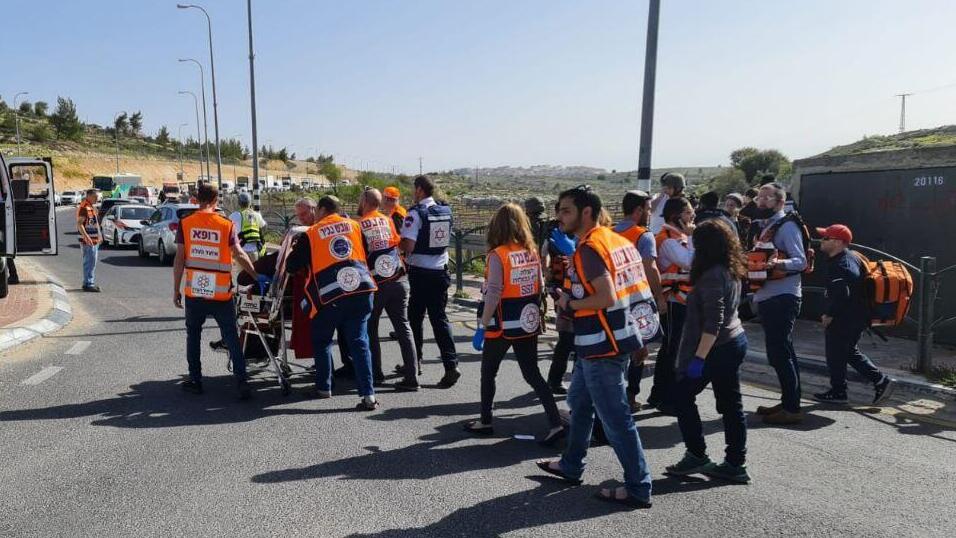

Scene of attempted terror attack in West Bank on Thursday
(Photo: Rescuers Without Borders)
Israel, meanwhile, is easing up restrictions on the Palestinian public in the West Bank and Gaza in order to calm the spirits despite the spike in terror activity.
While none of these things create immunity against the continuation of violence, they all give the Palestinians a reason to cooperate with the efforts to maintain the status quo and security.


